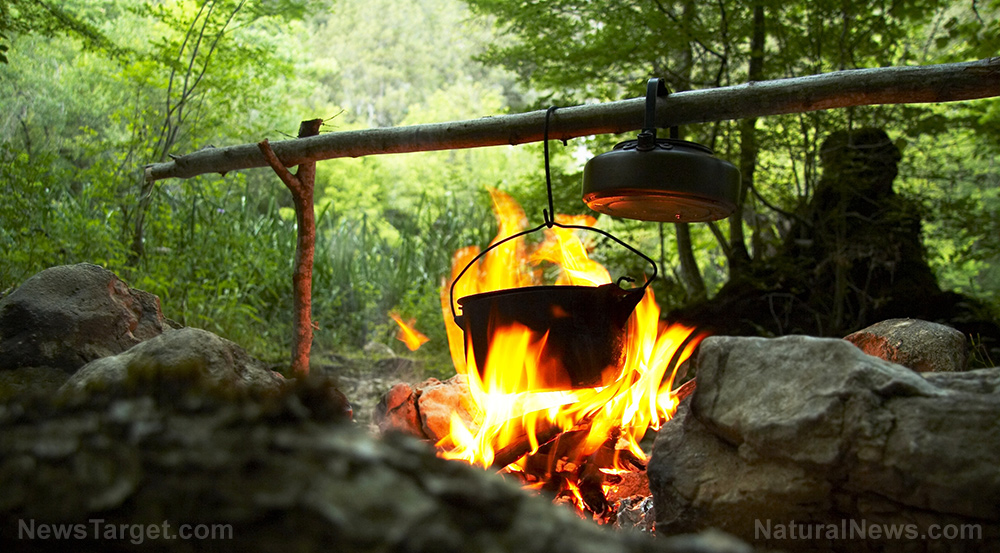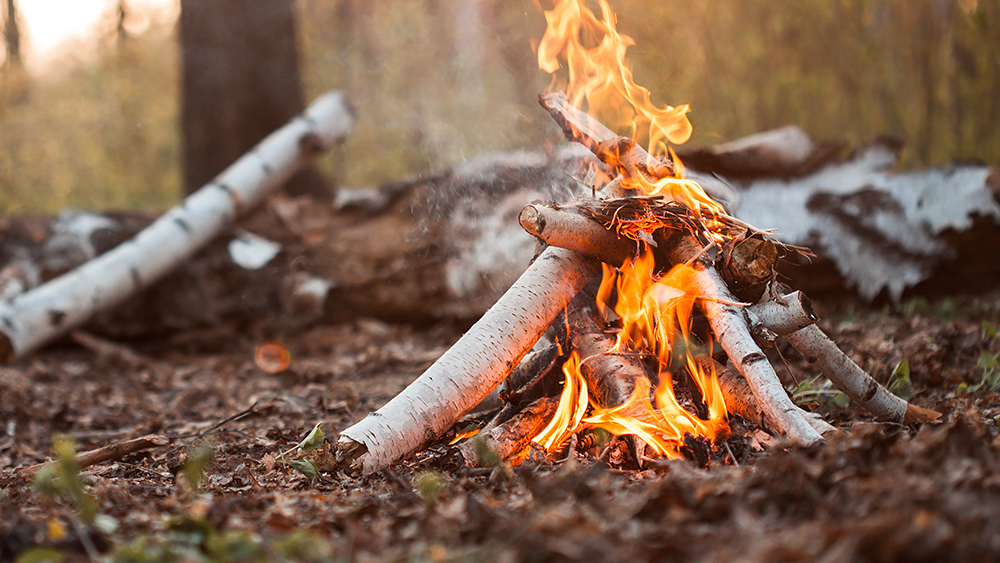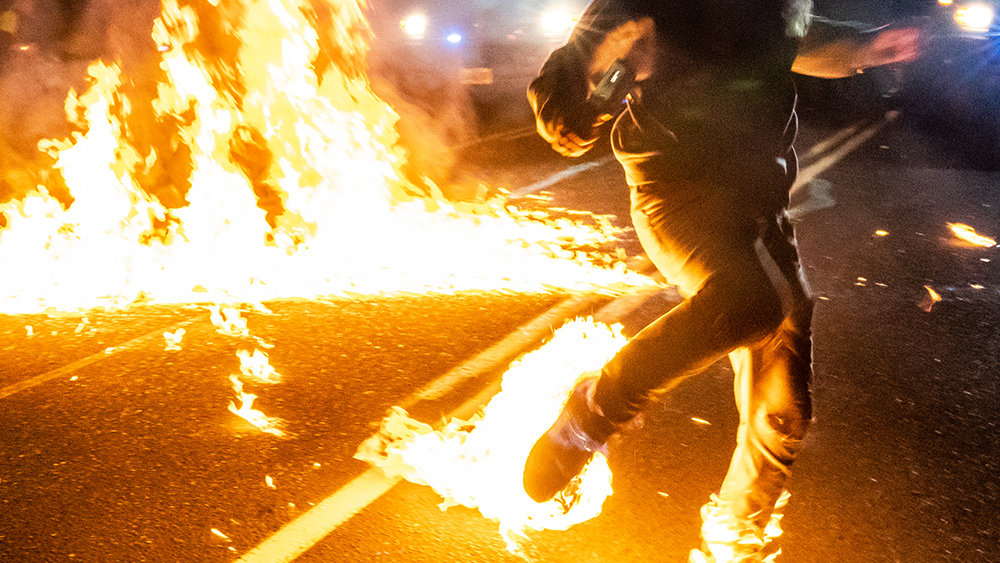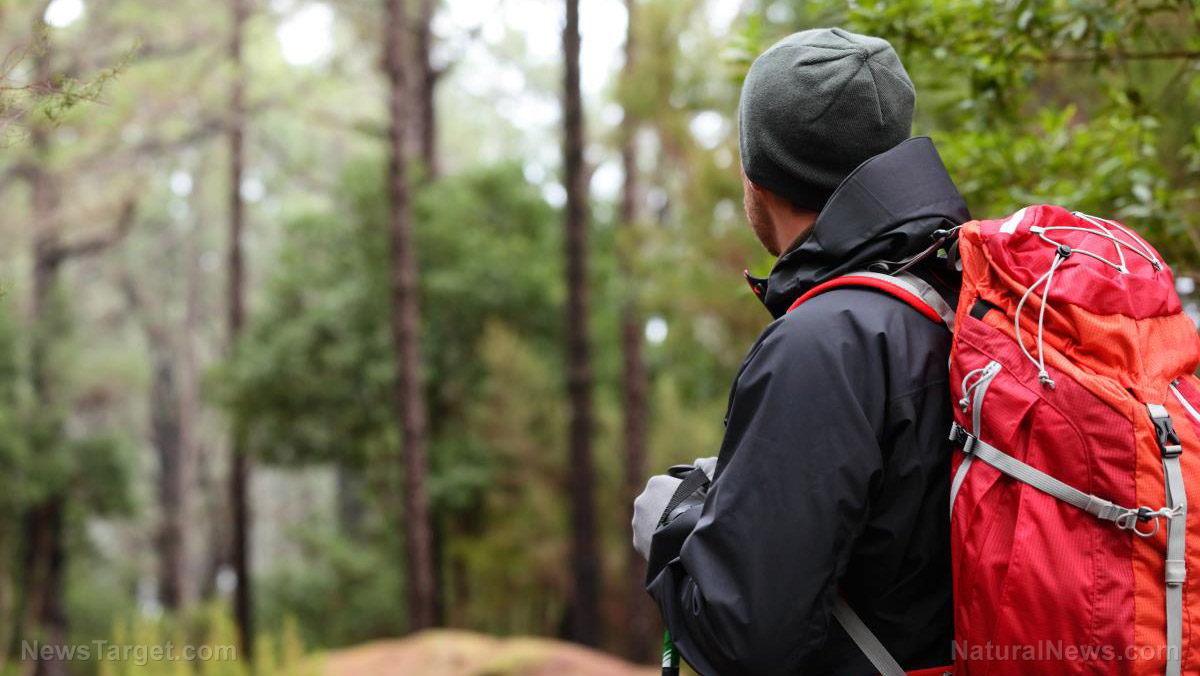
Before you go camping, you should make sure you have everything you need to build a shelter, cook your food or repair your gear in case SHTF. (h/t to SurvivalSullivan.com)
Having a checklist will ensure that your bag is light. Remember, you don't need a ton of gear if you already know basic prepping skills like hunting, foraging or firestarting.
Reusable water bottle or canteen
You need to stay hydrated while traveling to your camping site. When choosing a water bottle, buy something durable, leakproof and has a sturdy, tethered cap so you won’t lose it.
Water filter
If you run out of water, use a water filter to get more water for your bottle or canteen. A water filter will help keep your bag light since you can simply gather and filter water once you're at the campsite.
Cutlery set
Prep a heat-resistant and corrosion-proof cutlery set with a plate, utensils, cup and assorted small pots for boiling water or heating food. You can either use collapsible items or multipurpose tools to help keep your gear as light as possible.
Firestarter
With a firestarting kit, you can cook food, boil water, stay warm, and keep your campsite safe from wild animals. When prepping your camping gear, include at least two or more firestarters.
Your kit should include some of these items:
- Cotton balls dipped in petroleum jelly
- Ferro rod
- Fire piston
- Flint and steel
- Gauze and hand sanitizer
- Lighters
- Waterproof matches
- Wax and fibers
First aid kit
If someone gets hurt while you're out camping, you'll need a first aid kit to treat minor cuts and injuries.
Your first aid kit should include basic items like:
- Antifungal ointment
- Antiseptic wipes
- Band-aids
- Medical tape
- Blister care
- Bug bite cream
- Burn gel
- Scissors
- Sewing needles
- Snakebite kit
- Tourniquets
- Tweezers
You will also need supplies for treating more severe trauma like sprains, broken bones, major lacerations and penetrating injuries. Getting first aid certification will also be helpful during SHTF, so sign up for training before you go camping.
Paracord
A length of paracord may also prove useful if SHTF when you're out camping. You can use cordage to repair or secure your shelter or devise a makeshift fishing rod.
Multitool
Use a high-quality multitool to set up your tent or make repairs while outdoors. Choose a multitool with useful features like blades, saws and a sturdy set of pliers. (Related: Always bring a bug-out bag, but learn how to survive without one when SHTF.)
Duct tape
Duct tape is a prepper must-have whether you're at home or camping. Wind a length of duct tape around a short stick and cut a piece if you need to make quick repairs like patching up a hole in your tent or fixing tears in your gear.
Ziploc bags
Gallon, zipper-locking freezer bags have many uses at a campsite.
- Food storage
- Organizing small bits of equipment and gear
- Trash collection
- Waterproofing sensitive electronics and other delicate gear
If you need more water than you can store in your water bottle, use a clean Ziploc bag with "clicky" zipper strips, not the slider seal. The slider ones don’t hold up as well and they leak.
Baby wipes
You need to maintain proper hygiene while camping, but you don't always have access to clean running water for bathing. When in a pinch, make do with baby wipes.
Use baby wipes to clean grime and grease if you don't have any water or soap.
Bug spray
Use bug spray to protect yourself from blood-sucking, biting insects that can cause diseases like chiggers, fleas, ticks, or mosquitoes.
Flashlight or a headlamp
You'll need a bright flashlight or headlamp so you can light the way if you're traveling at night to your campsite.
Ideally, you should use a headlamp while traveling and switch to a flashlight if you need to get around after you've set up camp. Bring lots of spare batteries or a charger to keep your flashlight fully powered.
Backpack
Pack your gear in a sturdy bag with compartments for your various kits and supplies. If you're planning a short trip, opt for small, lightweight packs.
Use larger backpacks if you're going on an extended camping trip.
Outerwear
Bring the right kind of outerwear to protect yourself from extreme heat or cold while camping. Always pack outerwear specific to your season and local climate.
If camping in hot, arid climates, bring enough outerwear for protection against sun exposure, low nighttime temperatures and precipitation.
Boots or trail shoes
Never wear tennis shoes or sneakers if you're going camping. You'll need comfortable, light boots or trail shoes with a solid grip.
Tent or bivy
If you're going to splurge on camping gear, invest in a high-quality tent or bivy. Wherever you choose to stay for your trip, a tent or bivy will protect you from sun, rain, wind, or snow.
If you choose a tent with a multi-part frame system, practice setting it up at home, so you know what to do when you reach your campsite. If you don't need a full-sized tent, take a bivy or a small one-man version to keep your gear light.
Ground pad
Just because you're roughing it doesn't mean you have to sleep in an uncomfortable campsite. Bring a ground pad or sleeping pad so you can rest properly while camping.
If you don't have a ground pad, the ground will suck the heat from your body. The bare ground can also hurt your back if you chose a spot that's uneven, bumpy, and full of pebbles, rocks, or roots that will make you sore in the morning. Choose a solid closed-cell foam or inflatable ground pad.
Sleeping bag
Your sleeping bag will keep you warm when temperatures start to drop at night and the outside air gets chilly. Depending on the location, you may need a sleeping bag and a tent or just a sleeping bag if the weather is warm enough.
Modern sleeping bags are lighter and easier to pack into a small bundle. Bring a sleeping bag if you're camping in very warm climates or biomes.
Emergency blanket
There are several things to worry about when you're going camping: The weather, bugs, and exposure. Exposure to the elements, especially low temperatures and windy conditions while it's raining, can make your core body temperature plummet. This can incapacitate and even kill you in harsh conditions.
But you can prevent this with one item: An emergency blanket or a space blanket. Emergency blankets are crinkly, extra-large pieces of foil that reflect infrared heat energy emitted by your bodies back to you, helping you stay warm come rain or shine.
If you feel cold, simply drape the emergency blanket around yourself. You can also use it to form a makeshift shelter or reflector to maximize the warmth from your campfire.
Tarp
Lastly, you will need a tarp if you're going camping. When disaster strikes, you can use a tarp and some paracord to set up a simple shelter.
Alternatively, you can use a tarp as a windbreak or an extension for your tent or bivy. Chooser a tarp made out of lightweight, water-repellent synthetic materials to keep your backpack as light as possible.
Invest in important items like a multitool and tent so you can protect yourself from rain when SHTF.
Visit Gear.news for more articles with tips on how to choose the best camping gear.
Sources include:
Please contact us for more information.





















